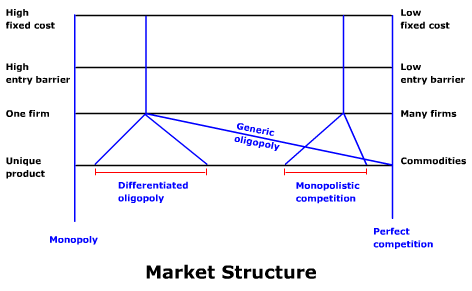Too Much Vitamin C?
Legacy habit of central planning has led to antitrust charges against Chinese vitamin C oligopoly.
From a humble beginning a decade ago, four Chinese manufacturers accounted for 67% of the world output of vitamin C in 2004. More significantly, Chinese vitamin C producers supplied more than 80% of the vitamin C used in the US market. Not surprisingly, price competition in such a highly concentrated industry for a homogeneous commodity product is severe.
But unlike an industry with many small players selling homogenous products, an oligopolistic industry with a few large dominating firms can easily collude to restrain competition and raise price. This approach is particularly understandable in a country that has been buffeted by antidumping charges for selling below cost in many exported products from less concentrated industries. So true to the legacy of a planned economy, the China Chamber of Commerce of Medicine and Health Products Importers and Exporters called a meeting of the largest vitamin C producers to contain destructive competitive pricing in December 2001. But the meeting might have been too successful. Spot price for vitamin C shot up from $2.8 to $7 a kilo soon after the meeting. Subsequent backsliding and an emergency meeting to stop backsliding led to wide fluctuation in prices. This set the stage for civil antitrust lawsuits from feed-supplement producers in California and Texas.
The defense of the cartel agreement revolves around the official status of the China Chamber of Commerce. Under international law, sovereign nations are immune from antitrust enforcement by another country. That is why lawsuits against OPEC, the international cartel among oil-producing countries are routinely dismissed. These days, the China Chamber of Commerce has evolved from its old role of setting prices and market standards under the planned economy to its new role as the champion of newly privatized businesses.
Unlike antidumping charges which usually involves just higher tariff to offset “unfairly low” prices if proven, antitrust lawsuits result in triple damages and possible criminal prosecution of company executives. Indeed, the successful antitrust suits against the European and Japanese vitamin cartel in 1997 have decimated their vitamin business leading to Chinese domination (see Vitamin, Inc.). The cost advantage of the two-step (instead of the typical five-step Western process) Chinese production process which propelled the successful emergence of the Chinese vitamin industry has thus turned out to be a mixed blessing by encouraging excessive entry in the Chinese market.
Notes:
- A Federal jury found the Chinese vitamin C makers guilty of antitrust price fixing in 2013. The judge ordered triple damages of $162 million (WSJ 3/14/2013. "Chinese Vitamin-C Suppliers Found Liable for Price-Fixing".)
References:
- Caijing Magazine. 11/14/2005. “Chinese companies face antitrust suits.”
- WSJ. 2/10/2006. “As China’s trade clout grows, so do price-fixing accusations.”
Glossary:
- oligopolyAn industry dominated by a few large firms. A generic oligopoly sells homogeneous products. A differentiated oligopoly sells differentiated products.

- price competitionCompeting for business on the basis of lower prices.
- price fixingCollusion among sellers to set prices which are likely to be higher than those under unrestricted price competition. It is most common and more likely to be successful in product markets with a few dominant major players. Usually, output is restricted to support the higher fixed price. Price fixing is illegal in most countries, but domestic antitrust laws are powerless against price-fixing collusion among sovereign countries, such as OPEC.
- regulationGovernment actions to temper the adverse effects of uncontrolled market activities.
- antitrust lawsLaws intended to protect consumer interests and preserve market competition.
- cartelCombination of sellers (usually in a generic oligopoly) to control output, price, etc. at the expense of buyers. Cartels that are not sponsored by sovereign states are subject to prosecution under U.S. antitrust laws. OPEC (Organization of Petroleum Exporting Countries) is a prime example of international cartel sponsored by sovereign countries beyond the reach of U.S. antitrust laws.
